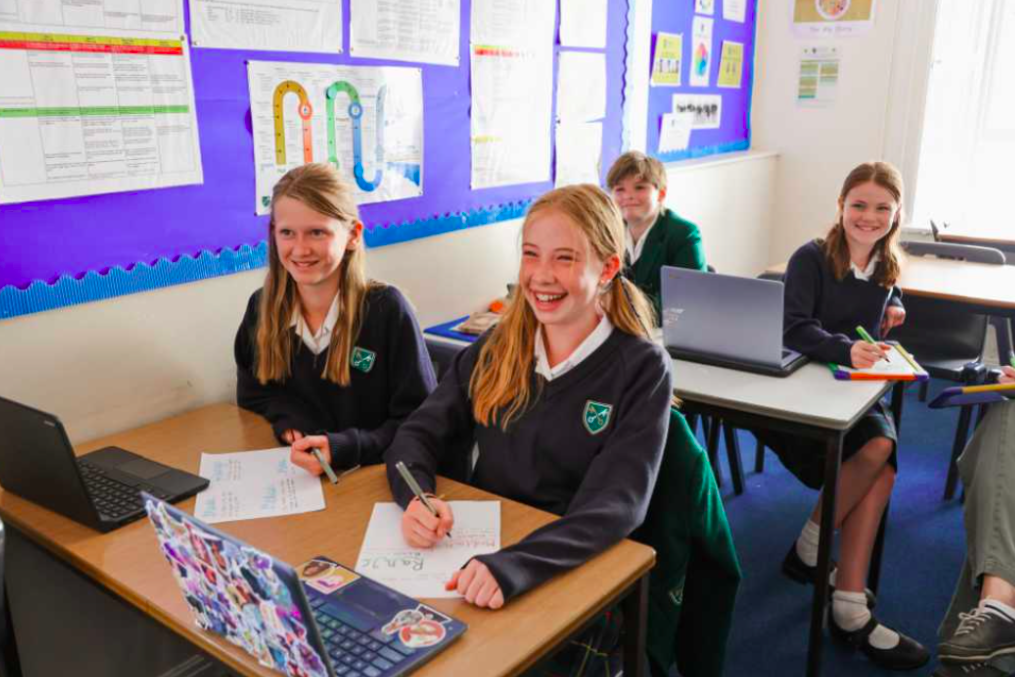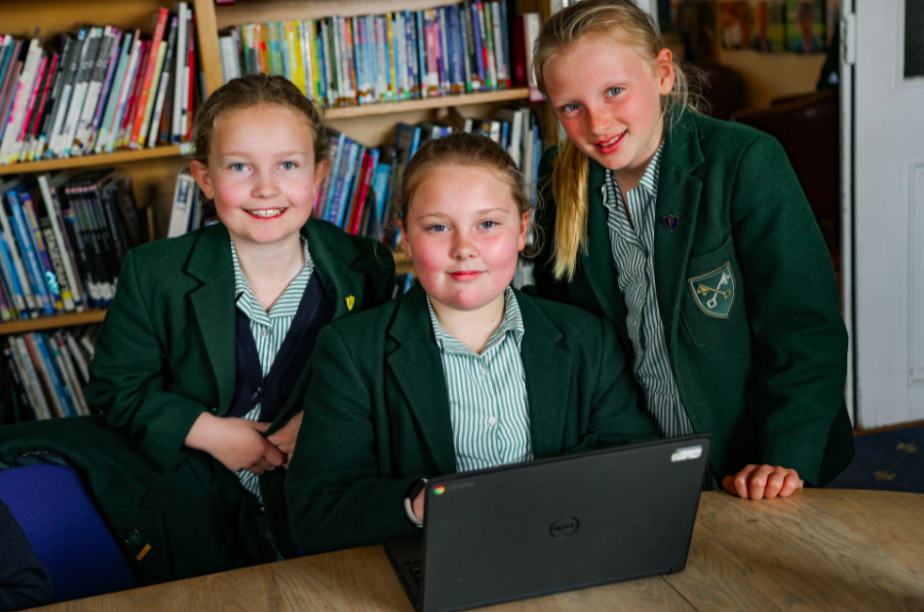Technology can be a fantastic gateway for your child to express creativity, explore ideas and develop blossoming interests. However, while there are many benefits to living in such a technologically advanced time, with great advancement comes great responsibility.
When it comes to your child’s screen time, it can be beneficial to balance time spent on a device with other activities to ensure they’re developing numerous hobbies and interests and not heavily rely on time spent in front of a screen.
How else can you reduce your child’s screen time in a fun, supportive way besides nurturing various hobbies? At our independent school in Devon, we explore practical tips and advice for a healthy approach to managing your child’s screen time.

1. Lead By Example
Being mindful about how much time you spend in front of screens can prompt a shift in family habits.
Discourage having phones at the dinner table to put a focus on spending time together screen-free. You could also set a rule that phones or devices stay in a separate room during family events and quality time together, adults included!
2. Use Screen Time Apps
Numerous apps are available to help you manage your child’s screen time. Some restrict screen use in fun ways, with one popular app giving phone users the time and space they need to focus, all while watching a forest grow!
The longer you leave your phone to one side, the more trees will grow. ‘Forest’ is a handy app for kids of all ages and is excellent for promoting focus.
If your child has an Apple device, parents can take advantage of the ‘Apple Screen Time’ app already installed. This app allows parents to manage their child’s device remotely, set limits on certain apps or overall on their iPhones, and stop access at bedtime.

3. Do Screen-based Activities Together
Have you noticed your child enjoying a particular game, podcast or programme? Engaging with what your child is doing on their screen can create common ground, and you could suggest that you do the activity together.
Whether that’s dancing around the living room or practising a different language, screens can offer all sorts of enriching learning activities.
Another encouraging way to be mindful of screen time is to create a space in the house where everyone can use their devices for a certain amount of time.
4. Set Parental Controls
By utilising parental controls, you can set specific time limits on your child’s device, ensuring their screen time doesn’t exceed what you set. You can define how much time they can spend on screens each day or during certain hours, helping to ensure their screen time remains balanced and doesn’t interfere with other activities such as homework or hobbies.
5. Set A Bedtime Routine
Screens and sleep certainly don’t mix, so make sure your child knows the rules around bedtime.
The National Sleep Foundation suggests turning off screens at least half an hour before bedtime to improve sleep, but turning off screens even longer before this will help your child wind down and prepare for higher-quality rest.

6. Get Outside
Ditch the screens and take to the great outdoors! We can sometimes forget how enriching the world on our doorstep can be when we have so much available at our fingertips. A simple walk in the fresh air is a great way to escape all that technology for a while.
Gardening and learning about nature are other brilliant ways to get kids outdoors and keep them engaged without incorporating screens.
At St Peter’s Prep, we’re lucky to be set in 28 acres of Devon countryside. Here, we encourage our students to embrace the outdoors and wide open spaces, including local beaches, our own woodlands, a pond, a forest school, and even a swimming pool.
7. Head to the Library
Another way to encourage your child away from their screen is to show them other places to get information and engaging material.
Head down to the local library and explore their children’s section. Many libraries will set fun reading challenges or host events to add an extra layer of intrigue and keep your child reaching for their next book rather than their screen.
8. Review Video Platform Settings
Many video streaming platforms, such as Netflix or YouTube, automatically cue up the next programme in a series or recommend more videos to watch. This can lead to less mindfulness when in front of screens.
Review the settings on these platforms to remove this feature and ensure you and your child have more say in what you watch next. Set up parental controls and monitor what your child watches and when.

9. Play Board Games
Your child may be familiar with various classic board games in virtual form, but how about bringing them to life and playing the real thing?
Games like Monopoly, Snakes and Ladders, and Dominoes are easy to play and provide endless fun for the whole family. Setting up a family leaderboard or having a weekly game night are good ways to keep your child’s interest going.
10. Get Your Child Involved in Hobbies
Hobbies allow children to build a great sense of self, confidence and independence and teach them valuable life skills such as communication and time management.
When children have hobbies they’re passionate about, they’ll naturally want to spend more time pursuing them rather than spending that time on their devices. Children will soon realise that their hobbies make them ‘feel good’ (research shows that participating in hobbies that interest you increases dopamine levels), resulting in happier children and healthy minds.
Our previous blog, Why Hobbies for Children are Important, explores the other benefits that hobbies offer children.

At St Peter’s Prep, we appreciate the benefits of technology but are always keen to encourage children to spend time away from screens. With woodland for our pupils to play in and interactive classrooms where young minds can explore, we aim for our students to receive an inspiring, well-rounded education.
If you would like more information on our educational prospects, including our opportunities as a flexi boarding school, then why not book an open day today and see our school in action?










